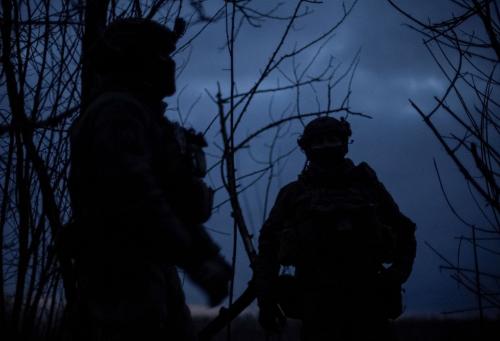President Donald Trump and his Russian counterpart Vladimir Putin will hold their first face-to-face meeting on the sidelines of the July 7-8 G-20 summit in Hamburg, Germany. Russia Matters asked experts to weigh in on the following questions: What would be your top five recommendations to President Trump ahead of this meeting? What do you believe to be the “low-hanging fruit” the two leaders can “pick” in their effort to improve bilateral relations (if any)? What do you see as the top five most difficult or intractable bilateral issues? Below is Brookings Senior Fellow Steven Pifer’s response. This post originally appeared on Russia Matters.
Mr. President: You will meet with Vladimir Putin at the July G-20 summit at a time when the U.S.-Russia relationship is at its lowest point in more than 25 years. Putin carries a deep sense of grievance against the United States. Careful handling of this meeting is important for your developing relationship with Putin and your ability to manage the U.S.-Russia relationship in Washington. Here are five recommendations to bear in mind:
- Start with process. It took years to get to this low point with Moscow. You will not be able to turn it around overnight. Endorse the Tillerson-Lavrov channel as the mechanism to resolve problems and to tee up possible agreements for your and Putin’s consideration.
- Raise with Putin the increasing encounters between U.S. and Russian military forces and growing risk of accident or miscalculation. Maintaining the de-confliction channel in Syria is critical to ensuring that U.S. and Russian aircraft do not get in each other’s way. Propose regular contacts between Secretary Mattis and General Dunford and their Russian counterparts to deal with difficult issues, including how to reduce the possibility of an accident between U.S./NATO and Russian military aircraft and warships in and around Europe. A mid-air collision between an Su-27 fighter and an RC-135 reconnaissance aircraft is a looming headache that you, Putin and the bilateral relationship do not need.
- Reiterate to Putin what Tillerson has said to Lavrov about the Ukraine-Russia conflict: It poses a major impediment to improved U.S.-Russia relations. You should offer U.S. readiness to engage more actively to advance the prospects for a settlement of the conflict in the Donbas, though there is little sign that the Kremlin wants a settlement at this point. You might remind Putin that sanctions will remain in place until Russia does its part to implement the February 2015 Minsk II settlement agreement, but if/when Russia does so, you will push to ease U.S. and European Union sanctions.
- Address arms control, which has generated positive momentum in the broader relationship in the past. You should urge Putin to join with you to preserve the 1987 Intermediate-Range Nuclear Forces Treaty, which Russia has reportedly violated by deploying a prohibited ground-launched cruise missile (Putin will raise concerns about certain U.S. activities, which could be addressed). You should return to Putin’s January idea of extending the 2010 New Strategic Arms Reduction Treaty to 2026. That could prove an early “win” for both of you and the bilateral relationship. The U.S. military’s strong support for New START would insulate you against any charge of an inappropriate concession to Moscow.
- Raise Russia’s interference in the 2016 election, even though Putin will almost certainly deny it. If you do not, you will be hammered by the U.S. media and Congress—and will guarantee passage of legislation that will restrict your flexibility to adjust sanctions on Russia. You could suggest to Putin formation of a working group to develop rules of the road to govern cyber behavior between the two governments.
Finally, be wary of accepting on the spot any “big” offer that Putin makes. He may try to lure you with a proposal that sounds good but has hidden downsides that are not readily apparent. You do not want to feed questions at home about collusion, and any deal struck in Hamburg that falls apart on your return to Washington will only put U.S.-Russia relations in a deeper hole.



Commentary
Tips for President Trump ahead of his first meeting with Putin
July 4, 2017